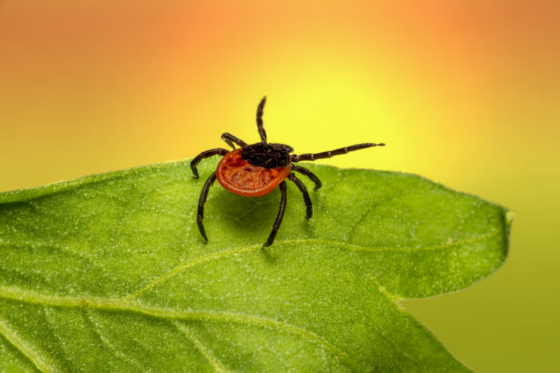Shih Tzu might be tiny but affectionate in personality. Their distinct long-haired coats and loyal nature make them excellent companions for families.
A Shih Tzu dog will average a life expectancy of 12 to 16 years. The oldest living Shih Tzu was a dog from Florida called Smokey, who was 23 years old.
Shih Tzu’s lifespan is affected by various factors that can affect their life expectancy. These include:
- Genetics
- Healthcare
- Exercise
- Overall well-being
This article will explore the lifespan of these beloved companions and offer tips to ensure they live their best lives with us.
Key Takeaways
- Shih Tzus have an average lifespan of 12–16 years.
- Every Shih Tzu is unique. There are no guarantees regarding their average life expectancy.
- Providing proper care and attention, e.g., regular visits to the veterinarian, adequate nutrition, and exercise, can help prolong lifespan and improve quality of life.
Average Lifespan of Shih Tzu
A recent study showed that dogs live to a moderate age of 15 without factoring in trauma. When trauma is included, the average life expectancy drops to 11 years.
Shih Tzus are small dogs whose average life expectancy is 12–16 years. The average lifespan is 13 years, but there are always exceptions.
Now, let’s look at Shih Tzu’s life expectancy compared to other small dog breeds.
| Dog Breed | Average Years |
| Shih Tzu | 12–16 years |
| Chihuahua | 15–20 years |
| Pomeranian | 12–16 years |
| Maltese | 12–15 years |
| Yorkshire terrier | 12 – 15 years |
The oldest documented Shih Tzu, Smokey, was 23 year old, and the current oldest Shih Tzu is 19 years old. Providing proper care to Shih Tzu can help ensure they live long.
Related: The Price of Shih Tzu Puppies & Adult Dogs (with Calculator)
Factors That Influence Lifespan
Various factors can influence the age of a Shih Tzu. Understanding these factors can help you promote the longevity of your furry companions.
- Genetics
There are different types of Shih Tzus. They include:
- Imperial Shih Tzus
- American Shih Tzus
- European Shih Tzus
- Brown Shih Tzus
- Teacup Shih Tzus
- Brindle Shih Tzus
Being aware of potential health issues of your Shih Tzu breed can help you make an informed decision when providing care.
- Diet and Nutrition
A nutritious diet is crucial in maintaining the health and longevity of a Shih Tzu. Feeding on a well-balanced diet will promote healthy digestion and strengthen the immune system.
- Physical Activity
Physical activities, from walking to playing витх your Shih Tzu, can help maintain overall health. Adequate exercise can prevent obesity, improve cardiovascular health, and enhance mental stimulation.
- Healthcare
Regular checkups with the veterinarian, vaccinations, and preventative care can help detect and treat health issues early on, preventing them from developing into more severe problems.
Proper grooming, dental care, and hygiene can also help prevent health issues.
- Living Environment
A safe and comfortable living environment will maintain the health and well-being of a Shih Tzu.
Related: How to Trim a Shih Tzu Face?
Common Health Issues
Shih Tzus are a healthy breed, but like all dog breeds, they are susceptible to certain health issues.
Some common health issues that can affect their lifespan include:
- Brachycephalic Airway Syndrome
Shih Tzus have short, flat faces. This can make breathing difficult for the furry friends, leading to respiratory issues and difficulty exercising.
- Eye Problems
Shih Tzus are prone to eye problems, including cataracts, glaucoma, and corneal ulcers. These conditions can cause vision loss and discomfort.
- Dental Issues
Shih Tzus have small mouths and crowded teeth. This physical trait can lead to dental issues such as tooth decay, gum disease, and tooth loss.
- Skin Allergies
Shih Tzus are susceptible to various skin allergies, which can cause itchiness, redness, and skin infections.
- Liver Disease
Shih Tzus may be prone to liver disease, which can cause symptoms such as vomiting, diarrhea, and loss of appetite.
Related: When Is Shih Tzu Full Grown?
Tips to Extend Shih Tzu Lifespan
It can be difficult to come to terms with your Shih Tzu’s short lifespan when it reaches the 10-year mark. But with proper care and attention, you can improve its well-being—adding your Shih Tzu a few more years.
Providing care can extend your Shih Tzu’s lifespan and keep them happy and healthy for many years. Some tips to improve the lifespan of your Shih Tzu include:

- Regular Veterinary Checkups
Routine wellness exams can help detect and treat health issues early on. Regular checkups with a veterinarian prevent health issues from developing into more severe problems. Your veterinarian may also recommend preventative care, such as vaccinations and parasite control, to help keep your Shih Tzu healthy.
- Healthy Diet
Feeding your Shih Tzu a well-balanced diet that meets their nutritional needs can help:
- Prevent obesity
- Promote healthy digestion
- Strengthen the immune system
Avoid feeding your Shih Tzu table scraps or food high in fat or sugar, which can lead to health problems.
- Regular Exercise
Take your Shih Tzu for regular walks, play fetch, or other fun activities to help them burn off energy. Physical activity can help prevent obesity, improve cardiovascular health, and enhance mental stimulation.
- Maintaining Oral Hygiene
Shih Tzus are prone to dental problems. It is important to maintain good oral hygiene.
Brush your Shih Tzus teeth regularly, and provide them with dental treats and toys that can help keep their teeth clean and healthy.
- Comfortable Environment
Shih Tzus are house dogs. Please provide them with a comfortable bed, plenty of toys to play with, and a safe space to relax in.
Shih Tzus are small dogs that can fall easily to predators if left to roam alone. Always supervise your Shih Tzu outside or keep them on a leash to avoid accidents.
Related: How Much Should Shih Tzu Weigh?
How Long Does a Shih Tzu Live? FAQs
Q: What Do Shih Tzus Usually Die From?
A: The most common causes of death in Shih Tzus are:
- Old age
- Cancer
- Kidney failure
- Heart disease
- Liver disease
Q: What are Shih Tzu’s Signs of Death?
A: Signs of impending death in Shih Tzus may include:
- Loss of appetite
- Difficulty breathing
- Loss of bladder or bowel control
- Drop in body temperature
If you notice any of these signs, we advise you visit your local vet immediately.
Q: How Long Do Female Shih Tzus Live?
A: On average, female Shih Tzus live between 10 and 16 years.
Q: How Long Do Shih Tzus Mix Live?
A: The lifespan of a Shih Tzu mix can vary depending on its breed mix, genetics, and care. Generally, they can live between 10 and 16 years.
Q: How Long Do Maltese Live?
A: On average, Maltese dogs live between 12 and 15 years.
Q: How Long Do Maltese Shih Tzus Live?
A: On average, Maltese Shih Tzus live between 10 and 15 years.
Q: Can Shih Tzu Live 20 Years?
A: A Shih Tzu can live for 20 years—but it’s very uncommon. On average, they live between 10 and 16 years.
Q: What Is Considered Old for a Shih Tzu?
A: A Shih Tzu is considered old when they reach nine years of age and above. However, they can live longer with proper care.
Conclusion
Shih Tzus are wonderful companions known for their playful nature and loving personality, and by taking steps to maintain their health and well-being, we can help ensure they live long happy lives. By addressing factors such as genetics, diet, exercise, and health care, we can extend their lifespan and improve their quality of life. Tips such as regular checkups, healthy diets, exercise, oral hygiene, and a safe environment can help our furry friends live longer and happier lives. Proper care can help ensure that our Shih Tzus remains our beloved companions for years.
References:











